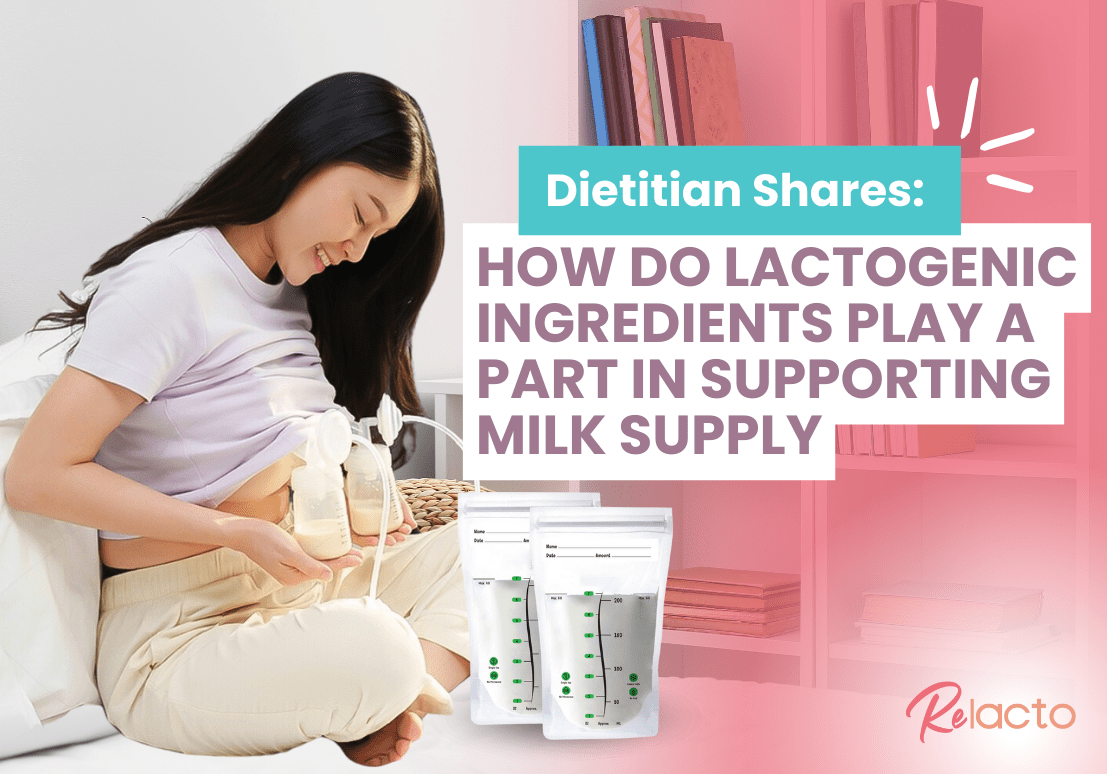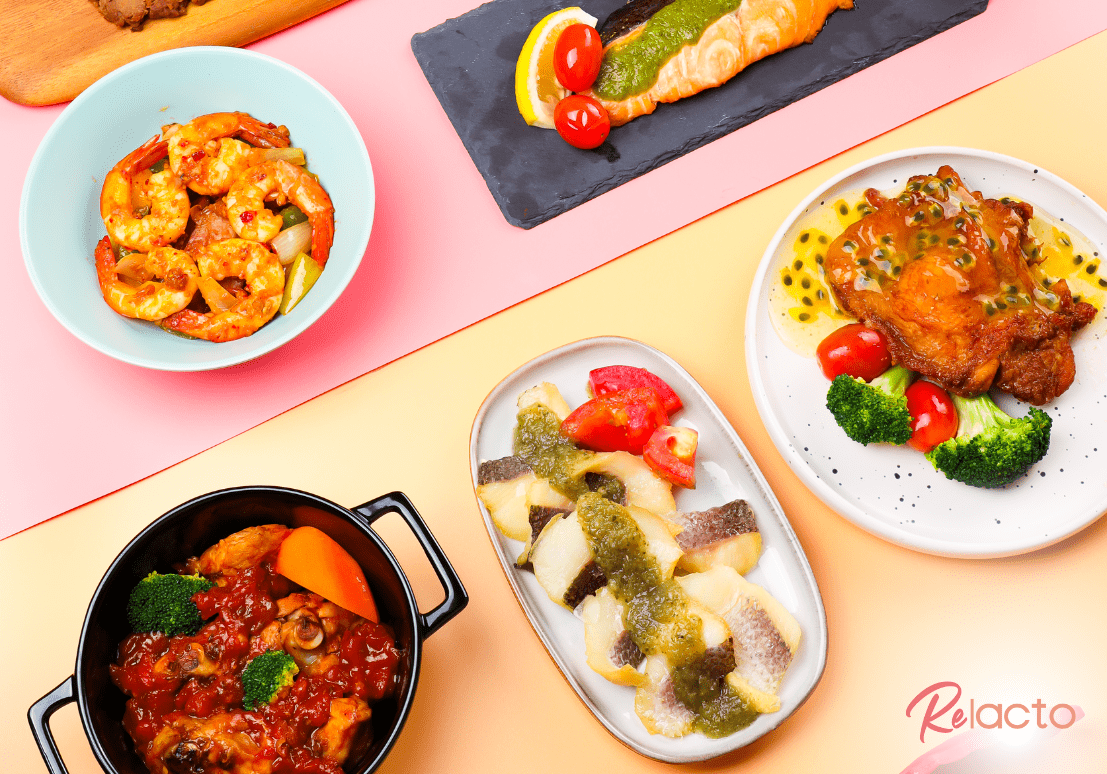Dietitian Shares: How Lactogenic Ingredients Play A Part in Supporting Milk Supply

Lactogenic ingredient is such a craze word among pregnant and breastfeeding mothers. Best food to increase breast milk is probably googled about the most by first-time mothers. It is talked about and asked most often among mummies. In this day and age, you soon realize that the diet to increase breast milk differs from different people from all around the world. It can get overwhelming and confusing pretty quickly!
The truth is, there is still a lot more research needed to understand the effectiveness, mechanism of action and therapeutic dosage of these food ingredients in supporting milk supply.
The main and proven method of increasing the milk supply effectively is by supply and demand. This means that the more often you nurse your baby with good latching, the more milk your body will produce to satisfy the demand from your baby.
Certain foods may potentially supplement that support on your milk supply as you breastfeed.
Fortunately, some of the lactogenic ingredients are easily found in our local supermarket. It is safe to consume in moderate amounts with food while breastfeeding. Additionally, many of these ingredients are rich in antioxidants and anti-inflammatory properties beneficial for overall general health.
Let’s take a deeper look at how some of these ingredients have been studied and are theorized to be potentially beneficial for mothers during breastfeeding.
Fennel
It is theorized that anethole, the main constituent of fennel, bears a strong structural resemblance to dopamine. It has been established that the secretion of the milk-producing hormone prolactin could be inhibited by dopamine.
Therefore, anethole may influence milk secretion by competing with dopamine at the receptor sites, thereby blocking the inhibitory effects of dopamine on prolactin secretion. Fennel increased prolactin in blood serum thus increasing breast milk production.
Besides that, it is also a source of calcium, magnesium and iron.
Fenugreek
It is theorized to be attributed to the stimulation of sweat production. Since mammary glands is a modified version of a sweat gland, thus the effect of fennel on milk production is possible. Additionally, it is also a source of iron which is important in women to have adequate intakes of to prevent iron deficiency anemia.
However, it is essential for breastfeeding mothers to not overtake this as too much fenugreek intake is linked with diarrhoea, nausea and maple-syrup odour to urine and sweat. In some cases, some infants may carry a maple syrup odour too.
Ginger
Ginger also has the property of warming up the peripheral temperature presumably by the effect of vasodilatation, a mechanism that may explain its possibility to boost milk production through increased blood supply of the lactating breasts.
It is best to not overdo it with ginger. Too much ginger intake may cause an upset in your tummy leading to reflux, heartburn and even diarrhea. It may also increase the risk of bleeding.
Thus, enjoy ginger with other foods and avoid taking ginger supplement or concentrated concoction while breastfeeding.
Garlic
There are studies showing that garlic consumption may also affect the odour of human breast milk and amniotic fluid.
The odour of breast milk was perceived by adult panellists as more intense; moreover, infants spent more time attached to their mother’s breast and fed more vigorously
However, these findings suggest that infants repeatedly exposed to garlic flavour in mother’s milk become habituated to the flavour and may only influence the infant’s suckling during the initial exposure
Green Papaya
Boiled papaya fruit contains saponins and alkaloids which can affect the production of prolactin and oxytocin. Prolactin functions as breast milk production synthesis. Alkaloids stimulate all smooth muscles to express breast milk at the alveoli.
Green papaya is rich in Vitamin C which is an antioxidant beneficial for skin health. Besides that, Vitamin C is also known to help increase the absorption of iron in the gut.

Conclusion
All in all, more research on food to boost breast milk supply is much needed. If it is proven effective at an appropriate dosage, it can be helpful for mothers all around the world to continue breastfeeding their babies. In the meantime, always prioritize having a well-balanced diet as you breastfeed. It is important to nourish yourself well as breastfeeding is nutritionally demanding for the body. If you are nourished well, your body will be able to support you well as you breastfeed and meet the demands of your baby.







